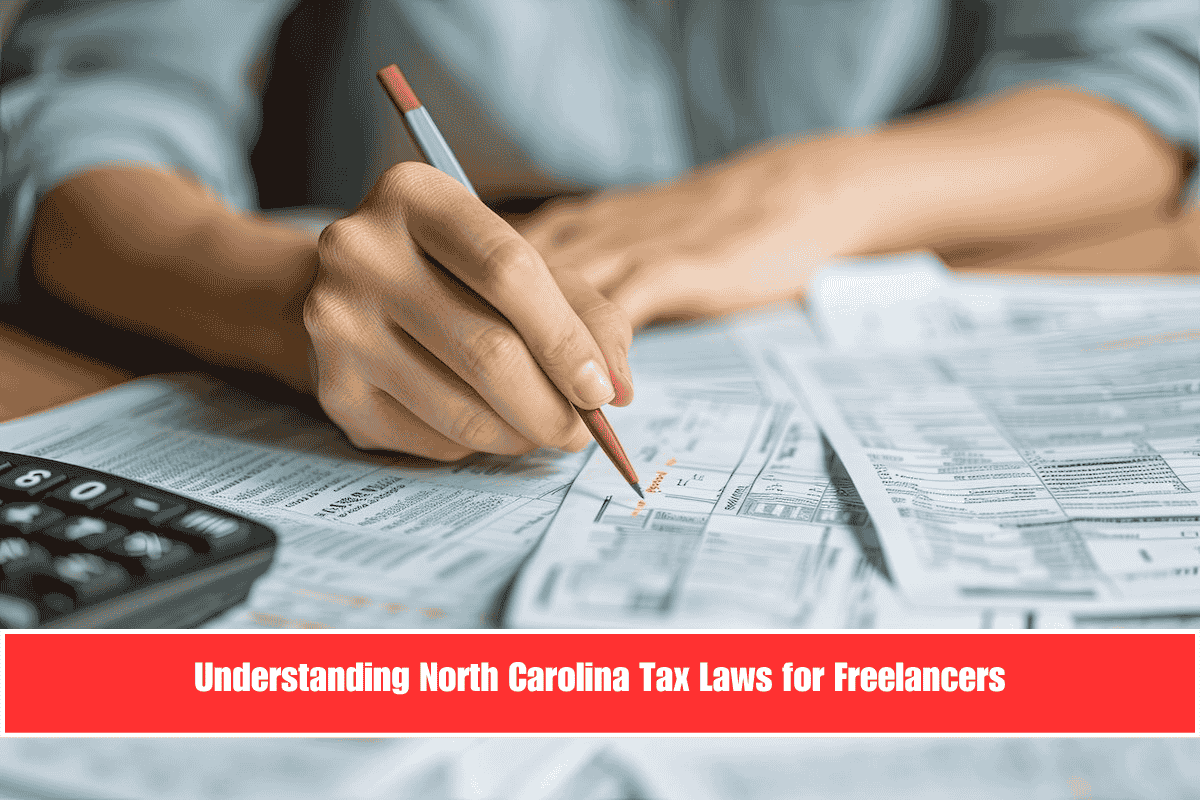Freelancers in North Carolina face a distinct set of tax responsibilities, including federal and state obligations, quarterly payments, and opportunities for deductions. Here’s what you need to know for 2025:
Self-Employment Tax (Federal)
- Freelancers are considered self-employed and must pay both the employer and employee portions of Social Security and Medicare taxes, totaling 15.3% (12.4% Social Security, 2.9% Medicare).
- You must file if your net self-employment earnings are $400 or more in a year.
North Carolina State Income Tax
- North Carolina has a flat individual income tax rate of 4.25% for 2025, down from 4.5% in 2024.
- All self-employed individuals must file a state tax return (Form D-400) if their income exceeds the minimum for their filing status (e.g., $12,750 for single filers).
- Estimated state tax payments are required if you expect to owe $1,000 or more in state taxes for the year.
Quarterly Estimated Payments
- Both federal and state taxes must be paid quarterly to avoid penalties.
- Federal deadlines: April 15, June 15, September 15, and January 15 of the following year.
- North Carolina follows a similar quarterly schedule for estimated payments.
Deductions and Credits
Freelancers can reduce taxable income by claiming business-related deductions, including:
- Home office expenses (must be used exclusively for business)
- Health insurance premiums (if self-paid)
- Business expenses (supplies, travel, equipment, advertising, professional services)
- Business mileage for work-related driving
Keep detailed records and receipts for all deductible expenses.
Filing Requirements and Forms
- Federal: Use Schedule C (Form 1040) for business income/expenses and Schedule SE (Form 1040) for self-employment tax.
- State: Use Form D-400 for North Carolina individual income tax.
- Filing status for state taxes must match your federal return
Other Compliance Considerations
- If you provide taxable services, you may need to collect and remit North Carolina sales tax.
- Proper classification as an independent contractor is critical to avoid penalties for misclassification.
- Consider registering as an LLC for added legal protection, though not required for tax purposes.
Recent and Upcoming Changes
- The state income tax rate is scheduled to decrease further to 3.99% by 2026.
- The federal standard deduction is increasing for 2025, which may affect your overall tax liability.
Best Practices
- Maintain separate bank accounts for business and personal finances.
- Use accounting software or consult a tax professional to stay compliant and maximize deductions.
Table: Key Tax Rates for NC Freelancers (2025)
| Tax Type | Rate | Notes |
|---|---|---|
| Federal Self-Employment Tax | 15.3% | Social Security & Medicare |
| NC State Income Tax | 4.25% | Flat rate for individuals |
| Estimated Payment Threshold | $1,000 | For both federal and state taxes |
Freelancers in North Carolina must be proactive about tax compliance, quarterly payments, and recordkeeping to avoid penalties and optimize their tax situation.
Sources
[1] https://www.selfemployed.com/self-employment-tax-guide-north-carolina/
[2] https://trybeem.com/blog/north-carolina-self-employment-tax-all-you-need-to-know/
[3] https://support.taxslayer.com/hc/en-us/articles/360015707432-What-are-North-Carolina-s-Filing-Requirements
[4] https://states.aarp.org/north-carolina/state-taxes-guide
[5] https://turbotax.intuit.com/tax-tips/self-employment-taxes/a-freelancers-guide-to-taxes/L6ACNfKVW














